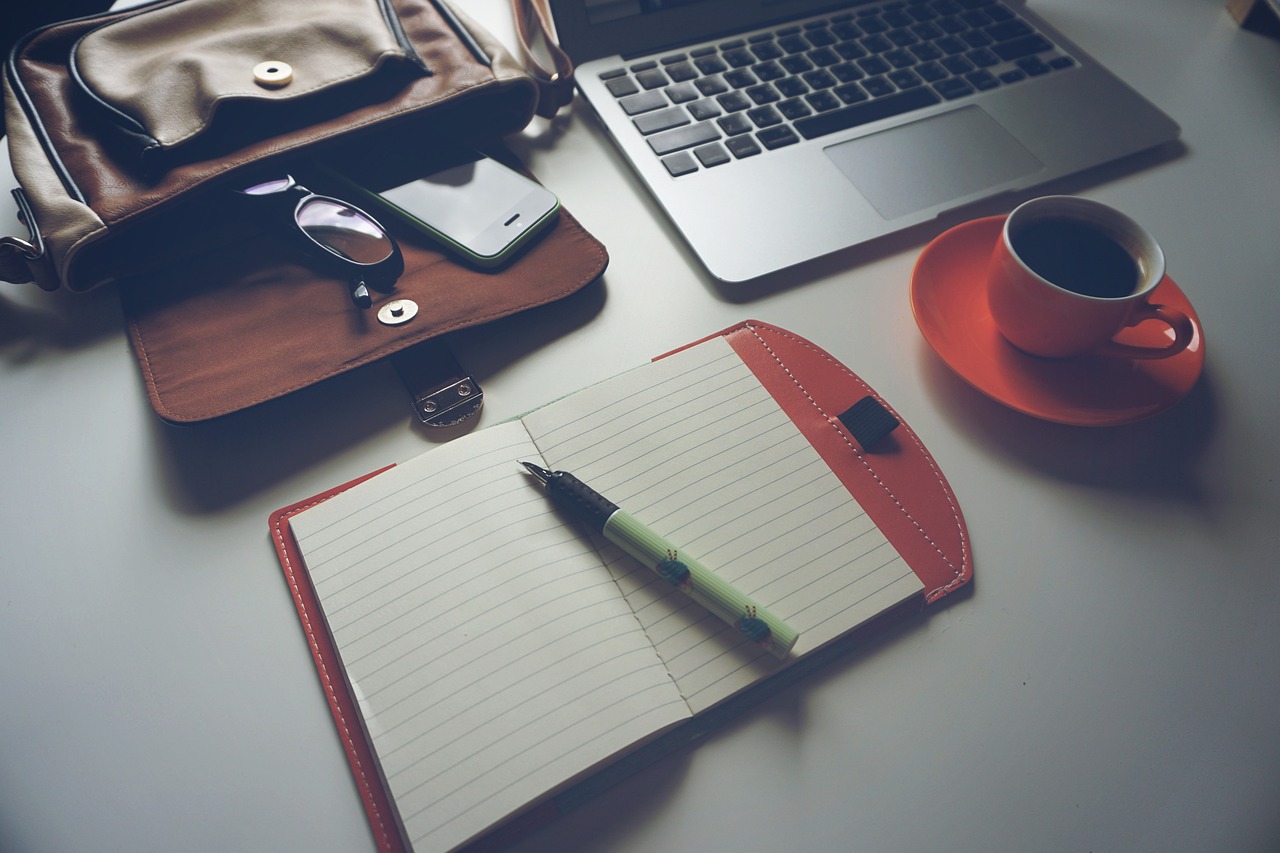Why “Just One More Thing” is Killing Your Productivity – And What to Do Instead

Ah yes, the temptation of “just one more thing” – we all do it, especially when working remotely. It feels like a small, productive decision, but in reality, it chips away at your work-life balance, drains your mental energy, and contributes to burnout.
While burnout is often discussed in the context of corporate jobs, solopreneurs and remote workers are equally at risk (if not more so) because we don’t have a manager monitoring our workload and well-being.
As a work-from-home business owner, this topic hits hard. I know what it’s like to keep going and then keep going and then keep going only to realize, Wow. I’m exhausted. So, I took a deep dive into whether doing “one more thing” really helps. Turns out, it doesn’t.
This article will explain why overworking doesn’t help, how the “just one more thing” mindset leads to exhaustion, and what you can do to set healthier work boundaries at home.
What Does “Just One More Thing” Really Mean?
The habit of squeezing in “just one more thing” when you should be logging off is a common productivity trap. It starts with something small:
“I’ll just send this one last email.”
“Let me quickly check Slack for any final messages.”
“I’ll edit this document now instead of tomorrow.”
Sound familiar? These seemingly minor tasks can easily snowball into an extra hour (or more) of work. They erode your ability to disconnect and recharge, which can eventually lead to burnout.
This bad habit is hard to detect because it doesn’t happen overnight. You might mistake it for normal stress or see it as an expected part of your workload.
For us self-employed professionals, this is even more dangerous, because we don’t have a manager checking in on us. That means it’s up to us to recognize when our work habits are leading us down a slippery, slippery slope and more importantly, when to do something about it.
The Hidden Costs of “Just One More Thing”
Adding one more task to your day might seem like a good use of time. I’ve often rationalized it as, If I do it now, I won’t have to do it tomorrow. The truth is, the long-term impact can be damaging. What feels like extra productivity is often just overwork disguised as efficiency.
Here’s what can happen:
1. Decision Fatigue Makes You Less Effective
Every extra task you take on drains your ability to make decisions. Without clear time management, your mental energy is depleted faster, making it harder to focus and prioritize the next day.
2. Diminishing Returns on Productivity
Studies show that working longer doesn’t necessarily mean getting more done. Past a certain point, overworking lowers focus, creativity, and overall performance.
Instead of boosting work-from-home productivity, squeezing in extra tasks actually lowers efficiency.
3. Overworking Causes Burnout & Stress
Burnout doesn’t just happen because of long hours – it happens when work feels never-ending.
The cycle looks like this:
Doing too much → Exhaustion → Poor sleep → Low energy the next day → More stress
According to the Harvard Business Review, burnout is particularly difficult to identify in remote work settings because it doesn’t always show up as obvious exhaustion. One major red flag? A sudden drop in engagement.
If you find yourself procrastinating more, avoiding tasks, or feeling disconnected from your own work, that’s a sign you might be pushing too hard.
What to Do Instead: Smarter, Sustainable Work Strategies
Pushing a little harder might feel like the right move, especially in a society where we often feel our worth is measured by how productive we can be.
But guess what? You don’t have to run yourself into the ground to be productive.
These strategies will help you set better boundaries, protect your energy, and get things done in a way that actually feels sustainable.
1. Set Clear Stopping Points to Improve Work-Life Balance
Decide when your workday officially ends – and stick to it. This one will feel tough, especially in the beginning.
A structured end-of-day ritual helps you avoid the “just one more thing” trap:
- Power down your computer.
- Write tomorrow’s priority list.
- Step away from your home office to signal that work is done.
This physical and mental separation makes it easier to fully disconnect and prevents the temptation to check back in. If you really need a clear separation, leave the house (like you’re “leaving” work), take a walk, and come back.
2. Use the “Next Task List” Hack Instead of Overworking
Instead of squeezing in an extra task, write it down for tomorrow.
This helps you maintain momentum without feeling like you must finish everything immediately. It also reduces anxiety about unfinished work, allowing you to fully relax at the end of the day.
3. Follow the 80% Rule for Sustainable Productivity
Rather than aiming to complete 100% of your tasks every single day, aim to stop at 80% effort.
Pushing yourself to exhaustion doesn’t make you more productive, it just makes you more tired. Sustainable work-from-home productivity is about pacing yourself for long-term success.
4. Prioritize Recovery Just Like You Prioritize Work
Taking breaks isn’t a luxury. (Louder for the people in the back!) Breaks are an essential part of your workday.
If you don’t give yourself time to recharge, your productivity, focus, and creativity will suffer. Instead of treating rest as something you’ll “get to later,” build it into your day just like any other priority. Recovery should be as intentional as your work tasks – planned, structured, and taken seriously.
Here are some things you could try:
Give your brain a “closing shift.”
Just like a store doesn’t stay open 24/7, neither should your workday. Spend the last 10 minutes doing something low effort like tidying your desk, organizing notes, or reviewing your progress so your mind can wind down gradually.
Schedule recovery like a meeting.
If you don’t plan for breaks, they won’t happen. Block time on your calendar for lunch, mid-day recharge breaks, or even a walk outside – just like you would for an important call. Protect that time the same way you protect deep work.
Match your recovery to your workload.
The harder you push, the more intentional your recovery needs to be. After a long focus session, take a longer, real break – one that gets you away from screens and lets your mind reset. Low-energy days? A five-minute stretch or a quick step outside might be enough.
If you don’t give yourself permission to recover, you’ll eventually crash. Treat rest and recovery as non-negotiables because they are.
Knowing When to Stop
I’ll be the first to admit: I still struggle with not doing “just one more thing.” It’s a tough habit to break, especially when you work from home. But while this habit may feel like it’s helping you get ahead, it’s working against you.
Setting clear work boundaries at home isn’t about doing less – it’s about working smarter, protecting your energy, and sustaining your productivity over the long run.
And I promise, if you can kick the habit, your future self will thank you.
FAQs: How to Avoid the “Just One More Thing” Trap & Improve Work-from-Home Productivity
Why does “just one more thing” hurt my productivity?
Squeezing in extra work might feel productive, but it actually leads to decision fatigue, overworking, and burnout. Without proper time management, your brain doesn’t get the downtime it needs to recharge – making you less efficient the next day.
How can I set better work boundaries at home?
Establish a clear stopping point with an end-of-day ritual – like closing your laptop, writing tomorrow’s tasks, or stepping away from your workspace. This helps separate work from personal time and prevents work-from-home productivity mistakes.
What is the best way to stop overworking as a remote worker?
Use the “Next Task List” method – whenever you feel the urge to do “just one more thing,” write it down for tomorrow. This preserves momentum while improving remote work efficiency without leading to exhaustion.
Does working longer hours improve productivity?
No – studies show that overworking leads to burnout and actually reduces performance. Instead of forcing long hours, focus on smart time management strategies like the 80% rule, which helps sustain productivity without draining your energy.










